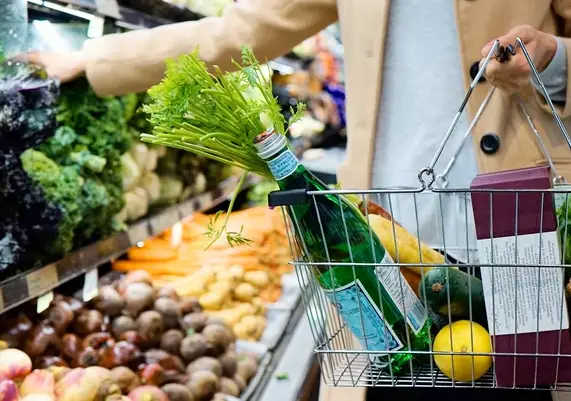As inflation slows down some, one place not seeing the relief is grocery prices.
Food at home prices rose 1.3% from June to July, leading to a 13.1% rise compared to last year. According to the Bureau of Labor Statistics data, it was the largest grocery price increase since 1979.
Consumer goods and services held steady in July from the month before, as inflation in July came in at 8.5%, down from the 9.1% in June, which was a 41 year record. Much of the decline was due to lower energy prices.
Food showed no such moderation however, rising by 1.1% for the month and 10.9% for this year. That made seven consecutive months during which food prices rose by 0.9% or more. Dining out was up 0.7% monthly in July and 7.6% compared to a year prior.
Egg prices were the fastest price increase, rising by 4.3% for the month and 38% on the year. Potatoes were also rising quickly, at 4.6% for the month and 13.3% year to year. Butter rose 26% for the year, and coffee was up 20% from a year ago.
Other items were mixed, as beef and veal declined in value for a month prior, their third consecutive month of decline. They were still up 3.4% over a year prior.
Rick Rieder, BlackRock’s chief investment officer of global fixed income summarized the findings, saying, “Both shelter and food costs still rose significantly. The persistence of still solid inflation data witnessed today, when combined with last week’s strong labor market data, and perhaps especially the still solid wage gains, places Fed policymakers firmly on the path toward the continuation of aggressive tightening.”
Core CPI, excluding the volatile food and energy, was up 5.9% for the year, and just 0.3% in the month.
Greg McBride, chief financial analyst at personal-finance site Bankrate noted, “The true trend of what is happening with inflation can be found in the core CPI reading that excludes the volatile food and energy components. The core CPI is still up nearly 6% in the past year.”
Kayla Bruun, economic analyst at global intelligence company Morning Consult said overall the CPI data was good news for the economy, however food prices are still being elevated due to a host of pressures, from high energy prices due to the war in Ukraine to other issues with shipping and distribution.
However she said in her opinion the overall fall in commodity prices should begin to make its way into food prices in the coming months, offering consumers some relief from the persistent inflation which has been wracking their pocketbooks.
However until then, the inflation in groceries remains high, with McBride adding, “Consumers are getting a break at the gas pump, but not at the grocery store.”


